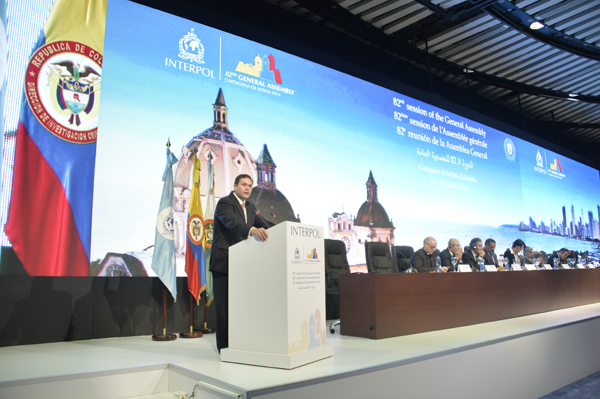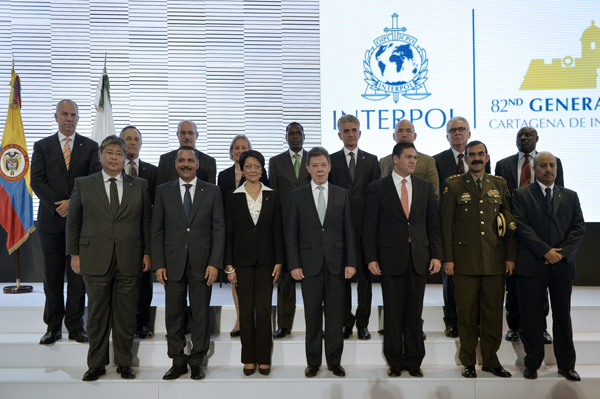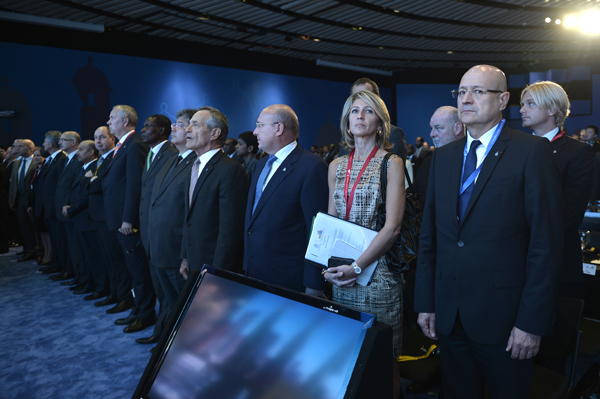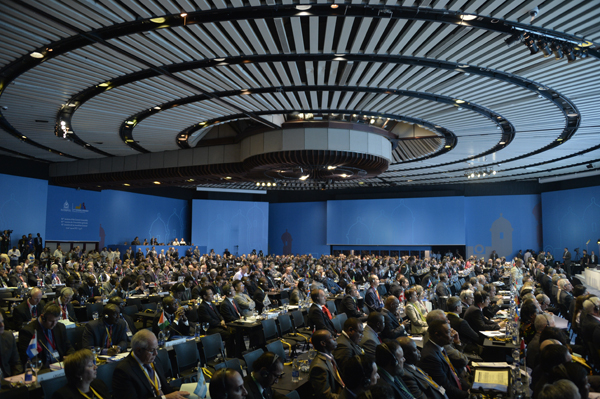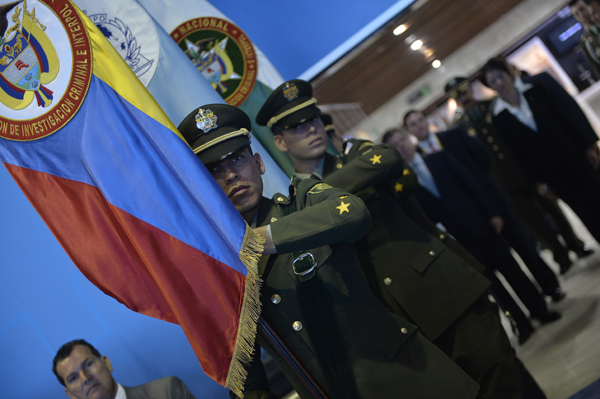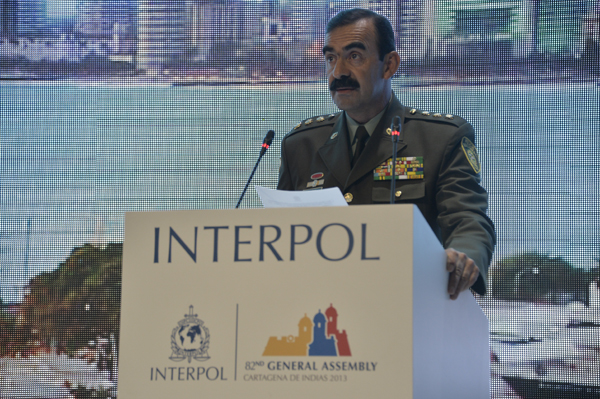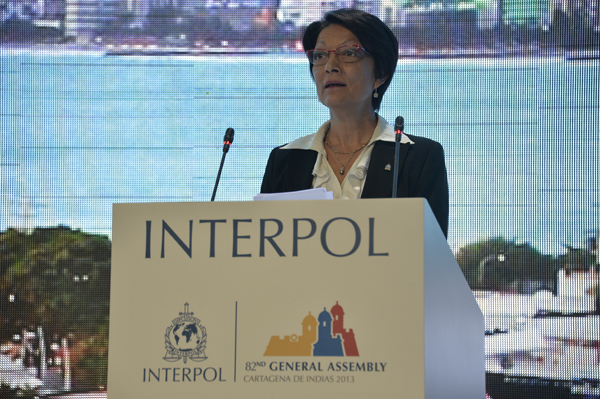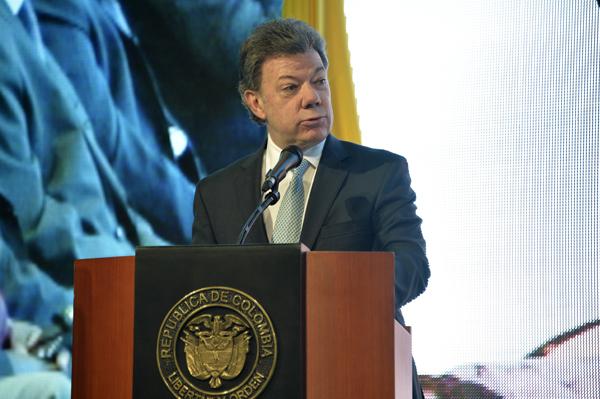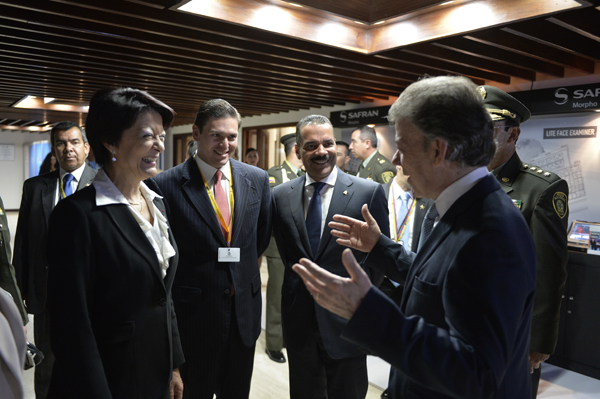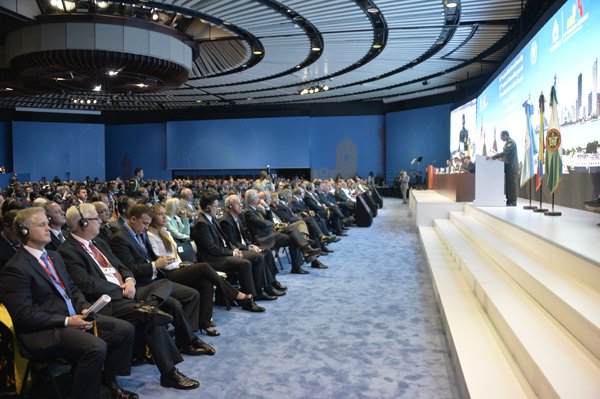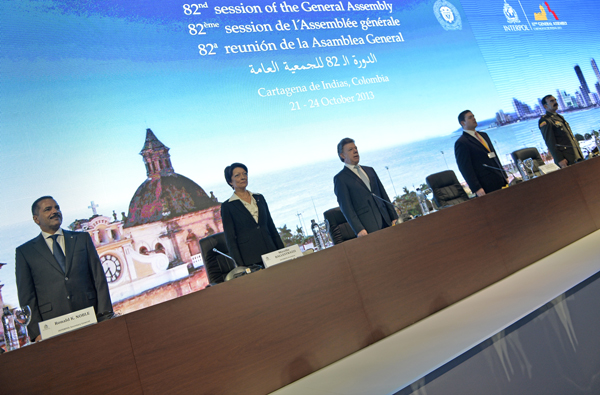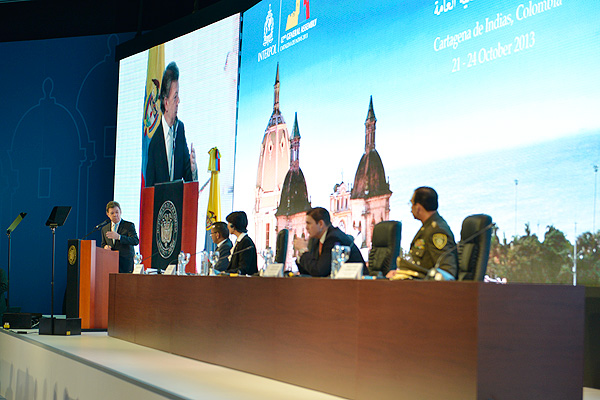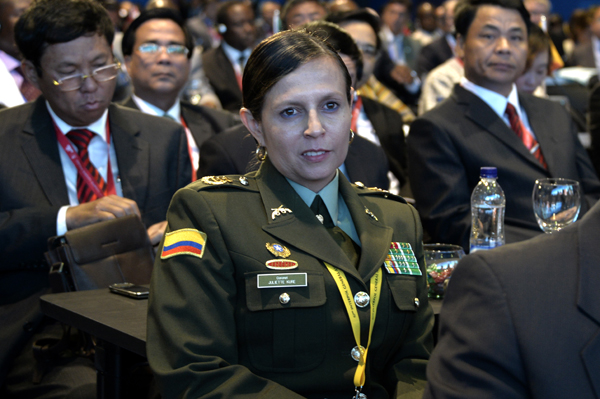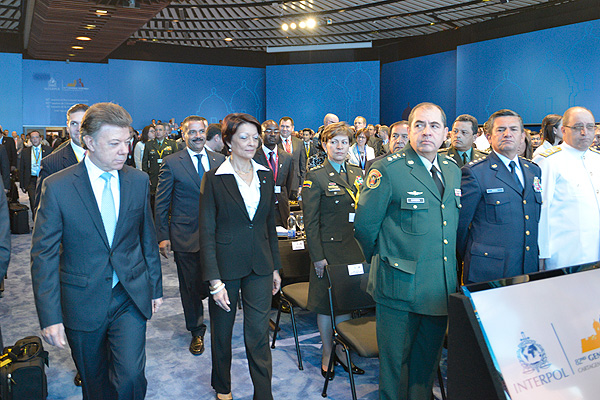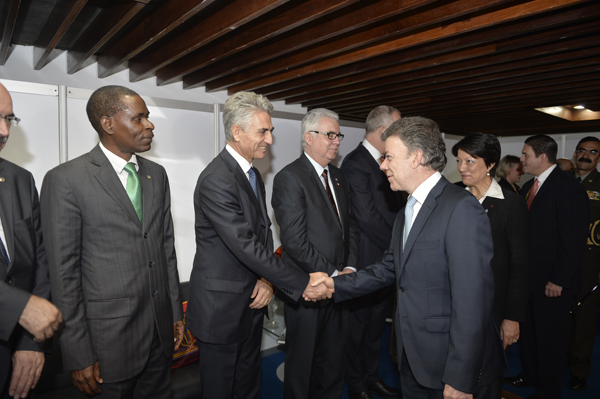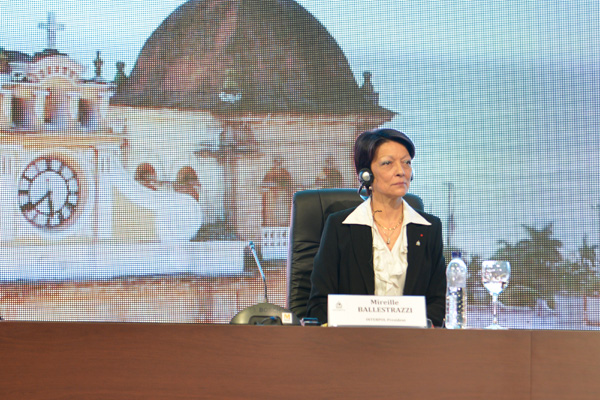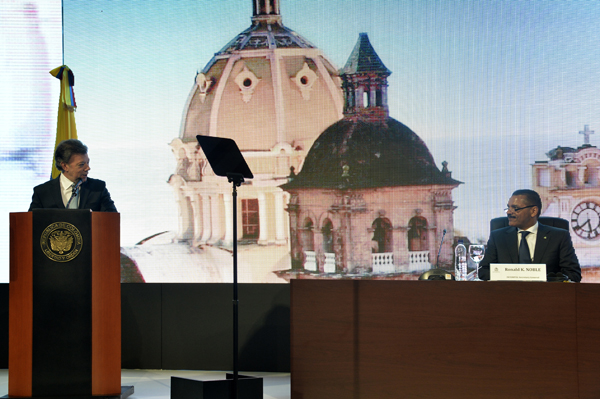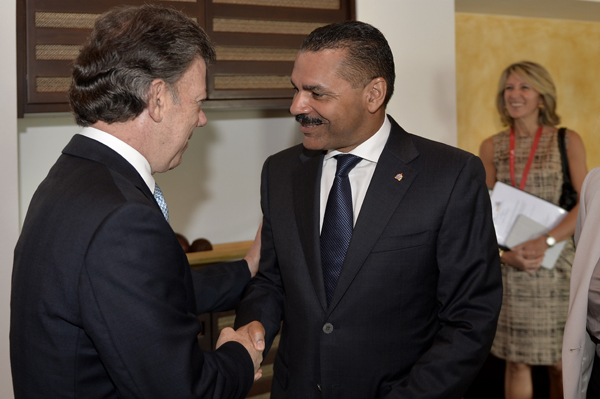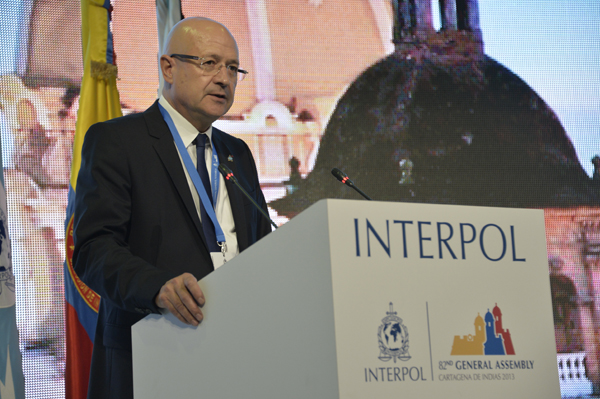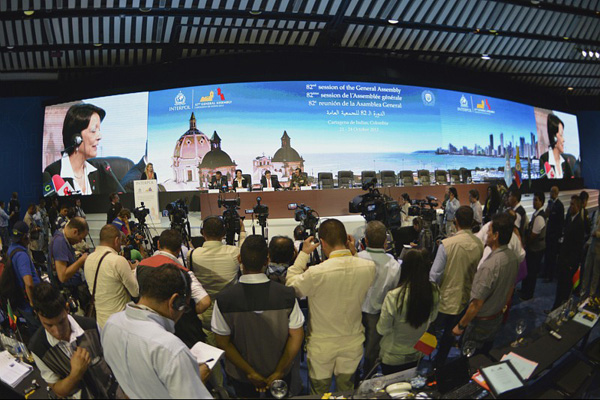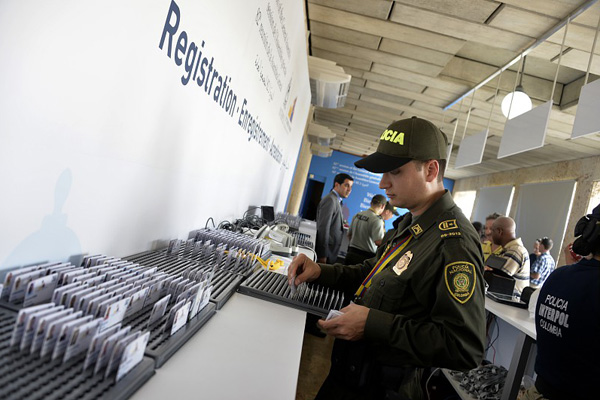CARTAGENA DE INDIAS, Colombia – The need for new strategies and measures to help law enforcement more effectively face emerging global crime threats is the focus of the 82nd INTERPOL General Assembly which opened in Cartagena de Indias, Colombia, today.
The four-day conference (21 – 24 October), which brings together some 630 police chiefs and senior law enforcement officials from 144 countries, will address a range of issues including strengthening border security, drugs trafficking, counterfeiting, arms trafficking and cybercrime.
Opening the INTERPOL General Assembly, Colombian President Juan Manuel Santos Calderón said Colombia believes in the importance of sharing knowledge, experience and information because doing so over the past decades has shown that it works.
“ INTERPOL is the clearest example of how it is possible to cooperate , regardless of distances and differences.
“The Colombian National Police and INTERPOL Colombia team work with sacrifice, dedication and discipline to combat all types of crime, sharing information and experience both national and internationally,”said President Calderón.
INTERPOL President Mireille Ballestrazzi told the General Assembly that for the world police body to continue working towards a safer world, decisions need to be taken with the future in mind.
“In combating terrorism, drug trafficking, cybercrime or protecting borders, INTERPOL will continue to develop and implement strategies, tools and innovative services, in tandem with our member countries efforts,” said President Ballestrazzi.
“The idea of INTERPOL was born nearly one hundred years ago, and the Organization has become a key player in the fight against transnational crime and terrorism. While the changes INTERPOL has already undergone have seen extraordinary advances, it is essential that we remain innovative to continue to meet the expectations of our 190 member countries,” concluded the INTERPOL President.
The Director General of the Colombian National Police, Major General Rodolfo Palomino López, said: “ For almost a century INTERPOL has been the reference for the construction of a global model of cooperation against crime, to protect and serve citizens around the world.
“The key to INTERPOL’s success is inter-agency cooperation, interconnectivity and the use of new information technologies, aptly summarized by its motto ‘connecting police for a safer world’”.
INTERPOL Secretary General Ronald K. Noble said the General Assembly provided an opportunity for police leaders to take stock of the challenges facing law enforcement today.
“In every country law enforcement faces strong competing pressures on its resources. To continue protecting the global community we must identify new models for cooperation and ensure we have the resources needed to better support police on the ground,” said Secretary General Noble.
“Just as no single country can hope to effectively tackle crime on its own, nor can INTERPOL work in isolation which is why partnerships with the public and private sectors are essential, both in terms of their funding and expertise,” added the INTERPOL Chief.
A number of cooperation agreements will be signed during the General Assembly, during which delegates will also be briefed on I-Checkit, INTERPOL’s new product verification solution. I-Checkit will enable the general public to check product security information to help identify potentially counterfeit and illicit goods. It is also aimed at preventing the resale of stolen products and possible identity fraud by allowing select private entities to cross-reference data against designated INTERPOL databases.




